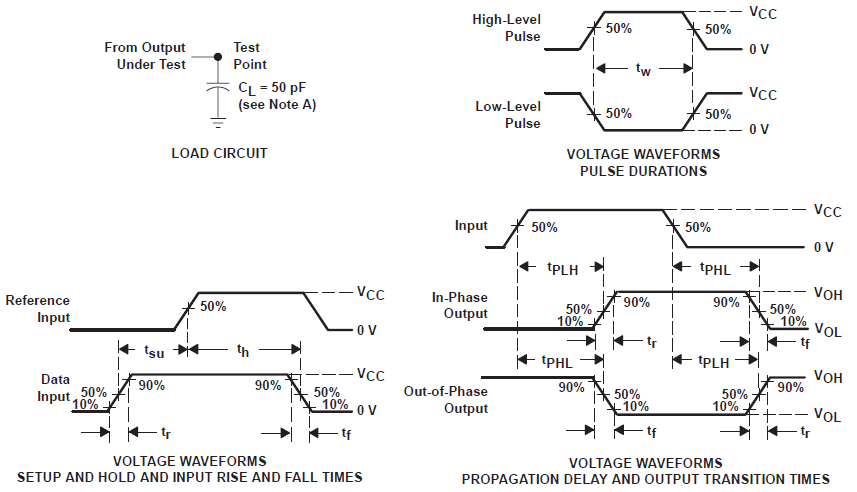SCLS143E December 1982 – December 2024 SN54HC393 , SN74HC393
PRODUCTION DATA
- 1
- 1 Features
- 2 Description
- 3 Pin Configuration and Functions
- 4 Specifications
- 5 Parameter Measurement Information
- 6 Detailed Description
- 7 Application and Implementation
- 8 Device and Documentation Support
- 9 Revision History
- 10Mechanical, Packaging, and Orderable Information
Package Options
Refer to the PDF data sheet for device specific package drawings
Mechanical Data (Package|Pins)
- D|14
- DYY|14
- DB|14
- PW|14
- N|14
- NS|14
Thermal pad, mechanical data (Package|Pins)
Orderable Information
5 Parameter Measurement Information

A. CL includes probe and test-fixture capacitance.
B. Phase relationships between waveforms were chosen arbitrarily. All input pulses
are supplied by generators having the following characteristics: PRR ≤ 1 MHz,
ZO = 50 Ω, tr = 6 ns, tf = 6 ns.
C. For
clock inputs, fmax is measured when the input duty cycle is
50%.
D. The
outputs are measured one at a time with one input transition per
measurement.
E. tPLH and tPHL are the same as tpd.
Figure 5-1 Load Circuit and Voltage Waveforms